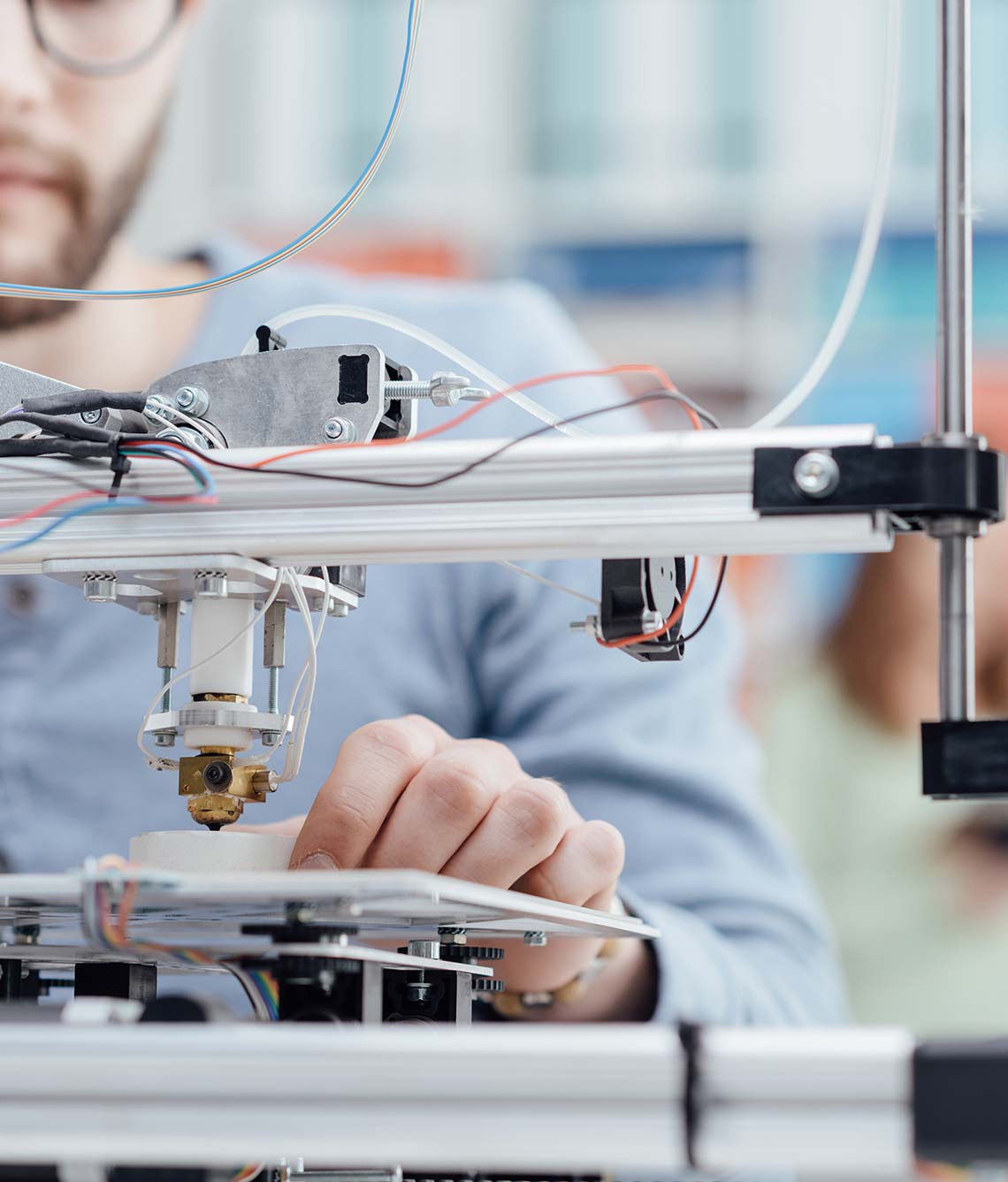Digital manufacturing is hungry for talent

A 3D printer can print a house. What else could it do?
With the advent of automation, 3D modelling, 3D printing, and precision cutting, creative possibilities are multiplying in the manufacturing industry.
UFV's Digital Manufacturing diploma equips you with the know-how to work in a high-tech shop. The program is designed for all levels of experience whether you are new to the manufacturing field or have experience working in manufacturing and want to upgrade your skills. As a Digital Manufacturing student, you explore the techniques needed to harness evolving technologies and create innovative products made of smart materials.
The two-year Digital Manufacturing diploma builds on a foundation of electronics theory. Over four semesters, you begin with the basics of electrical and digital theory and then move into courses focusing on 3D modelling, material science and technology, design for manufacturing, computer numerical controlled (CNC) machinery, and fabrication technology.
You get to interact with and create a wide array of digital equipment including digital and CNC machinery, 3D printers, laser cutters, plasma cutters, automated looms, culinary equipment and more. In the final semester, you apply what they have learned by working on a design and implementation project, based on student-directed goals and interests.
Upon graduation, you are ready to enter a field hungry for talent as an operator, technician, or technologist, either in digital manufacturing or any economic sector deploying technology.
Career Outlook for digital manufacturing
Canadian Manufacturers and Exporters (CME) reports that manufacturing employs 1.7 million people, with an annual compensation of $114 billion — more than any other sector. Currently, 40% of CME’s members experience skill shortages. This number is expected to grow to 60% in five years.
Locally, manufacturing supports 12,000 firms and 400,000 jobs according to City of Abbotsford Economic Development (CAED). As an economic driver, manufacturing provides $8.6 billion in wages, which is 15% higher than the overall average wage for all industries. High technology is fuelling growth in the sector: CAED reports that in the last 15 years, advanced manufacturing businesses grew over 19% of all firms, to almost 45% of the total manufacturing firms in British Columbia.
Therefore, digital manufacturing grads have excellent employment prospects in a wide variety of enterprises including aerospace, mining, steelmaking, automotive, food processing, wood and paper products, and consumer goods.
